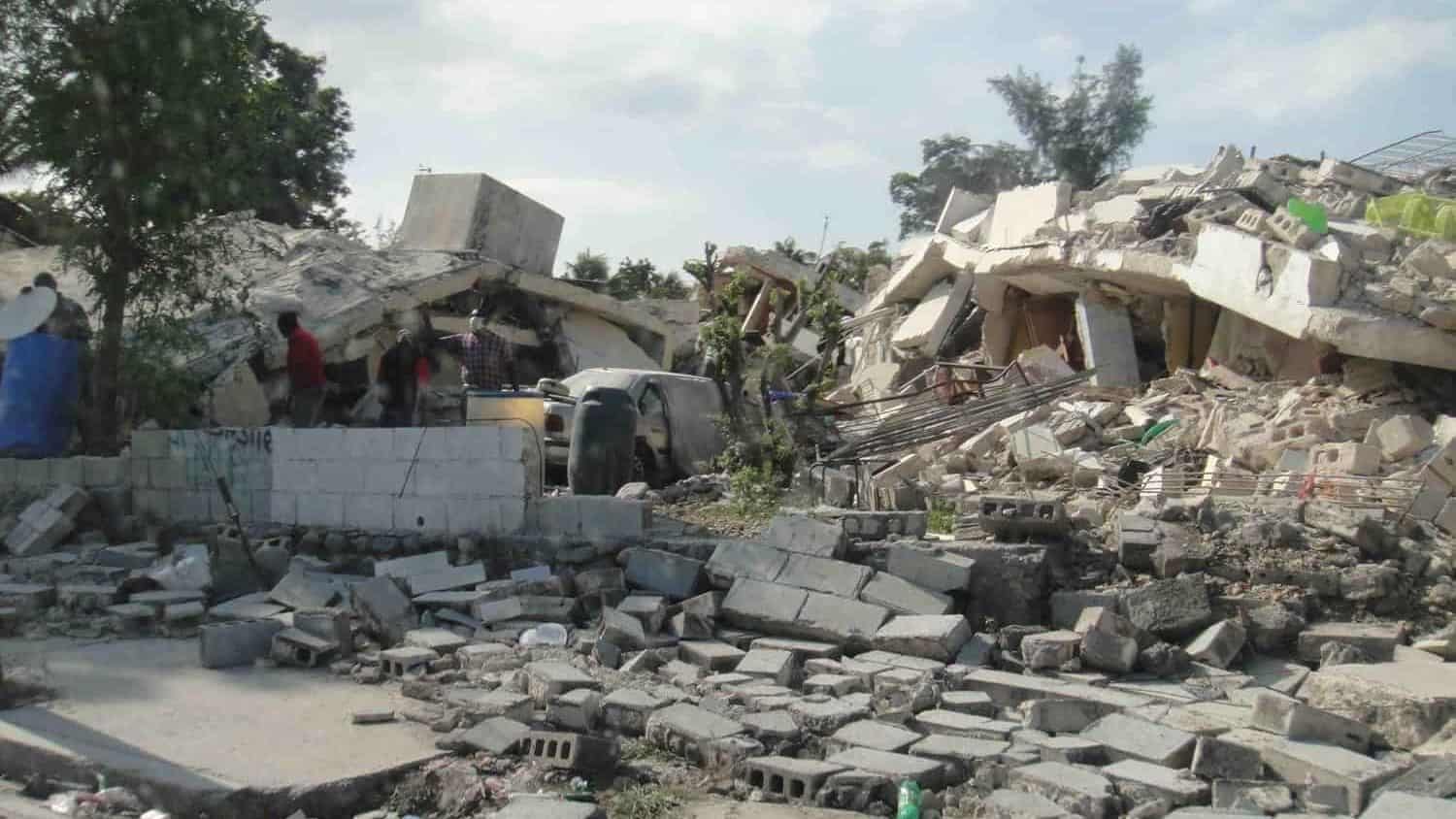
Following the 7.0 magnitude earthquake that shook the country on January 12, 2010 that resulted in more than 200,000 deaths, Internews launched a daily 20-minute humanitarian radio program called ENFOMASYON NOU DWE KONNEN (News You Can Use), or ENDK. The program was prepared by a team of 12 Haitian journalists and focused on providing timely, relevant and actionable information ranging from where to access food and water, to hygiene and health tips, to useful guidelines for protecting a tent from flooding during rain and who to contact to replace lost identification papers.
The journalists’ efforts were supplemented by a team of Haitian researchers who conducted ongoing audience research to identify the affected population’s essential and desired information needs. The results of that research guided ENDK programming decisions, which in turn created a renewed, more directed information response in subsequent audience research. Internews’ work in Haiti was supported by the John D. and Catherine T. MacArthur Foundation, the John S. and James L. Knight Foundation, the Pierre and Pamela Omidyar Fund, the Shelley and Donald Rubin Foundation, the Silicon Valley Community Foundation, the United States Agency for International Development/Office of Transition Initiatives (USAID/OTI), the United Nations Office for the Coordination of Humanitarian Affairs (UNO-CHA) and numerous individual donors.
“In terms of programming, the principal, most identifiable, and tangible impact of USAID/OTI’s investment in Internews is clearly the effect of the news program Enfomasyon Nou Dwe Konnen (ENDK). It is evident from the evaluation, as well as Internews’ own research, that the creation of ENDK was vital to ensuring affected populations had access to timely and essential information to help them survive the aftermath of the earthquake.”
Independent Evaluation, OTI/USAID Haiti
IMPACT
- Reaching affected communities – Within one month of launching ENDK, 80% of the participants of evaluation focus groups knew about it. By the July 2010 end-line close to 100% of the earthquake-affected population knew about the service. Similarly, 46% of survey respondents during the period March 2010 to March 2011 indicated that they listened to ENDK at least once a month.
- Humanitarian Information – End-line focus group participants were able to identify key pieces of information that they had used in their daily lives, such as how to protect oneself during an earthquake or hurricane; how to prevent malaria by using a mosquito net and getting rid of any standing water; how to prevent diarrheal diseases by washing hands regularly and drinking only potable water.
- Adaptive Management and Data Driven Programs – According to the Haiti Project Evaluation research, ENDK shared its results on information needs of Haitians affected by the earthquake with the wider humanitarian community working in Haiti, and these organizations used the results to inform their own outreach and communications programs and to better serve their beneficiaries
FINAL REPORTS

Infoasaid produced this media landscape guide about Haiti in October 2012.
Sep 17, 2012
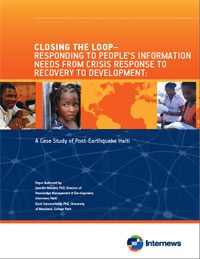
This paper is based on research done for Internews’ humanitarian information radio program launched in Haiti after the earthquake and shows that information is a critical component of any humanitarian response.
May 17, 2012
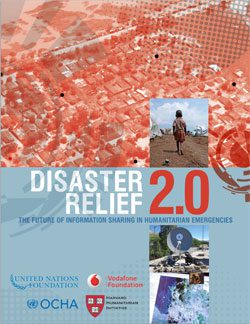
This report analyzes how the humanitarian community and the emerging volunteer and technical communities worked together in the aftermath of the 2010 earthquake in Haiti, and recommends ways to improve coordination in future emergencies.
Mar 28, 2011
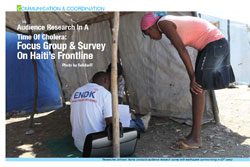
With audience research, relief organizations are better able to identify key issues that are likely to be important to affected populations, like the location of healthcare facilities or distribution points for food and water.
Jan 17, 2011
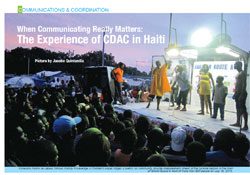
This article describes the work of The Inter-Agency Working Group on Communicating with Disaster Communities (CDAC) in Haiti (www.cdac-haiti.org).
Jan 1, 2011
CASE STUDIES
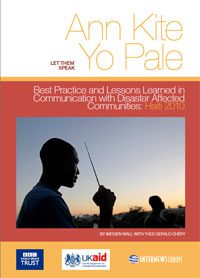
This report, published by infoasaid, captures practical case studies and best practice in communications with affected communities during the 2010 responses in Haiti.
Nov 17, 2010